Volker Schlöndorff is a German filmmaker who has made significant contributions to the world of cinema.
He was born in 1939 in Wiesbaden, Germany, and studied film at the Institut des Hautes Études Cinématographiques in Paris.
Schlöndorff’s work often explores historical and political themes, and his films are known for their strong visual style and powerful storytelling.
He has won numerous awards throughout his career, including the Palme d’Or at the Cannes Film Festival for his film “The Tin Drum”.
Here are a few of the best Volker Schlöndorff films that are definitely worth checking out:
The Tin Drum (1979): This film is based on the novel by Günter Grass and tells the story of a young boy who refuses to grow up and instead communicates through the sound of his tin drum.
The film won the Palme d’Or at the Cannes Film Festival and is considered a masterpiece of German cinema.
Coup de Grâce (1976): This film is set during the Russian Revolution and follows the story of a love triangle between a German soldier, his cousin, and a woman fighting for the Bolsheviks. The film features stunning cinematography and powerful performances from its cast.
The Lost Honor of Katharina Blum (1975): This film is a political thriller that follows the story of a young woman who is accused of terrorism by the media and the government.
The film is based on the novel by Heinrich Böll and is a powerful commentary on the dangers of political propaganda.
Best Volker Schlöndorff Films
Volker Schlöndorff’s films are renowned for their insightful storytelling and powerful visual style.
If you’re a fan of world cinema, political dramas, or historical epics, Schlöndorff’s work is definitely worth exploring.
1. The Tin Drum (1979)
“The Tin Drum” is a 1979 German film directed by Volker Schlöndorff, based on the novel of the same name by Günter Grass.
The film won the Palme d’Or at the 1979 Cannes Film Festival, and also won the Academy Award for Best Foreign Language Film in 1980.
The film tells the story of Oskar Matzerath, a young boy who decides to stop growing at the age of three in protest against the world around him.
The film is set in Danzig (now Gdańsk) during World War II, and explores the rise of Nazism and its impact on society through the eyes of a child.
One of the most notable characteristics of “The Tin Drum” is its surrealistic and symbolic imagery, which is used to illustrate Oskar’s subjective experiences and perceptions of the world around him.
The film also uses a mix of comedy, drama, and fantasy to explore complex themes such as the loss of innocence, the corrupting influence of power, and the relationship between individual and collective memory.
The film’s production design is also noteworthy, with a vividly rendered and meticulously crafted depiction of life in Danzig during the 1930s and 1940s.
The film’s score, composed by Maurice Jarre, also adds to the film’s dreamlike quality.
If you like Volker Schlondorff’s work, on our sister site AuteurGraph we have a profile page, a visual film timeline, and a ratings page that gives a tonne of info and data about their career in a visualized form.
Overall, “The Tin Drum” is a visually stunning and emotionally powerful film that deftly combines elements of history, politics, and surrealism to create a unique and thought-provoking cinematic experience.
Its exploration of the impact of political upheaval on individual lives continues to resonate with audiences today.
- David Bennent, Mario Adorf (Actors)
- Volker Schlondorff (Director)
- English (Subtitle)
- English (Publication Language)
- Audience Rating: R (Restricted)
2. Young Törless (1966)
“Young Törless” is a 1966 German-language film directed by Volker Schlöndorff, and based on the novel “The Confusions of Young Törless” by Robert Musil.
The film is set in an all-boys boarding school in pre-World War I Austria, and follows the experiences of a young Törless as he navigates the complex dynamics of power, sexuality, and morality among his fellow students.
One reason to watch “Young Törless” is its powerful and thought-provoking exploration of the nature of power and the ways in which it is wielded among groups of people.
The film delves into the subtle and sometimes brutal ways in which individuals can assert their dominance over others, whether through physical force, psychological manipulation, or social hierarchies.
It raises important questions about the morality of power and the ways in which individuals can use it to exploit or oppress others.
Overall, “Young Törless” is a powerful and thought-provoking film that explores important themes with intelligence and nuance.
Its expert craftsmanship and compelling character study make it a must-watch for fans of classic European cinema.
- Factory sealed DVD
- Mathieu Carrire, Marian Seidowsky, Bernd Tischer (Actors)
- Volker Schlndorff (Director) - Herbert Asmodi (Writer)
- English (Subtitle)
- Audience Rating: NR (Not Rated)
3. A Degree of Murder (1967)
“A Degree of Murder” is a 1967 French crime film directed by Volker Schlöndorff and Jean-Pierre Coursodon. The film tells the story of a successful young lawyer named Robert who is married to a beautiful and wealthy woman, Marianne.
Robert is unhappy in his marriage and becomes infatuated with a young woman named Barbara. When Marianne threatens to divorce him and take everything he has, Robert decides to kill her.
The film is notable for its use of flashbacks and non-linear narrative structure, as well as its exploration of the psychological and emotional motivations behind Robert’s actions.
The film also features a distinctive visual style, with a mix of black-and-white and color photography, and a number of striking visual and symbolic motifs.
Despite its dark subject matter, “A Degree of Murder” is a thought-provoking and intellectually challenging film that explores themes of desire, power, and the corrupting influence of wealth and privilege.
- Degree of Murder (1967) ( Mord und Totschlag )
- Degree of Murder (1967)
- Mord und Totschlag
- Anita Pallenberg, Hans Peter Hallwachs, Manfred Fischbeck (Actors)
- Volker Schlöndorff (Director) - Degree of Murder (1967) ( Mord und Totschlag ) (Producer)
4. Michael Kohlhaas – Der Rebell (1969)
“Michael Kohlhaas – Der Rebell” is a 1969 West German historical drama film directed by Volker Schlöndorff.
The film is an adaptation of the novella “Michael Kohlhaas” by Heinrich von Kleist and tells the story of a 16th-century horse dealer, Michael Kohlhaas, who seeks justice after being wronged by a local nobleman.
The film is set in the German states during the 16th century and explores themes of power, justice, and rebellion.
The film is notable for its stark, black-and-white cinematography and for its realistic portrayal of life in 16th-century Germany.
It features powerful performances from the cast, particularly David Warner in the lead role of Michael Kohlhaas.
The film has been praised for its strong political and moral message, as well as for its exploration of the individual’s struggle against an unjust society.
“Michael Kohlhaas – Der Rebell” is widely considered to be one of the most important films of the German New Wave, a movement of filmmakers in the 1960s and 1970s who sought to challenge traditional filmmaking conventions and explore the darker aspects of German history and culture.
- German, English (Subtitles)
- English (Publication Language)
5. The Lost Honor of Katharina Blum (1975)
“The Lost Honor of Katharina Blum” is a 1975 West German film directed by Volker Schlöndorff and Margarethe von Trotta, based on the novel of the same name by Heinrich Böll.
The film explores the themes of media manipulation, political extremism, and the erosion of civil liberties.
The film tells the story of Katharina Blum, a young woman who is caught up in a police investigation after spending a night with a suspected terrorist.
The media sensationalizes her story, and her reputation is destroyed as a result. The film is a scathing critique of the media’s role in shaping public opinion and the devastating impact that can have on individual lives.
One of the most notable characteristics of “The Lost Honor of Katharina Blum” is its use of documentary-style techniques, including voice-over narration and news footage, to create a sense of realism and immediacy.
The film’s cinematography also contributes to its stark and gritty feel, with the use of hand-held cameras and natural lighting.
Overall, “The Lost Honor of Katharina Blum” is a powerful and thought-provoking film that remains relevant today in its exploration of the dangers of media sensationalism and political extremism.
Its exploration of the tension between individual rights and state power is a timeless and important theme that continues to resonate with audiences around the world.
- Factory sealed DVD
- Angela Winkler, Mario Adorf, Dieter Laser (Actors)
- Margarethe von Trotta (Director) - Heinrich Bll (Writer)
- English (Subtitle)
- English (Publication Language)
6. Coup de Grâce (1976)
“Coup de Grâce” is a 1976 German-language film directed by Volker Schlöndorff, based on the novel of the same name by Marguerite Yourcenar.
The film is set in 1919 during the aftermath of World War I, and tells the story of a doomed love triangle between a young German woman, her cousin, and a Russian soldier.
One reason to watch “Coup de Grâce” is its unflinching and deeply emotional exploration of the impact of war on individual lives and relationships.
The film’s depiction of the sense of loss, disillusionment, and despair that permeates the lives of its characters in the wake of the war is both devastating and insightful.
Another reason to watch “Coup de Grâce” is its expertly crafted atmosphere of tension and unease. The film’s use of lighting, sound, and camera work create a haunting and evocative environment that perfectly captures the sense of instability and chaos that characterizes the post-war era.
Overall, “Coup de Grâce” is a deeply affecting and expertly crafted film that explores important themes with intelligence and nuance.
Its gripping atmosphere and compelling character study make it a must-watch for fans of classic European cinema.
- Factory sealed DVD
- Matthias Habich, Margarethe von Trotta, Rüdiger Kirschstein (Actors)
- Volker Schlöndorff (Director) - Geneviève Dormann (Writer) - Anatole Dauman (Producer)
- English (Subtitle)
- Audience Rating: Unrated (Not Rated)
7. Circle of Deceit (1981)
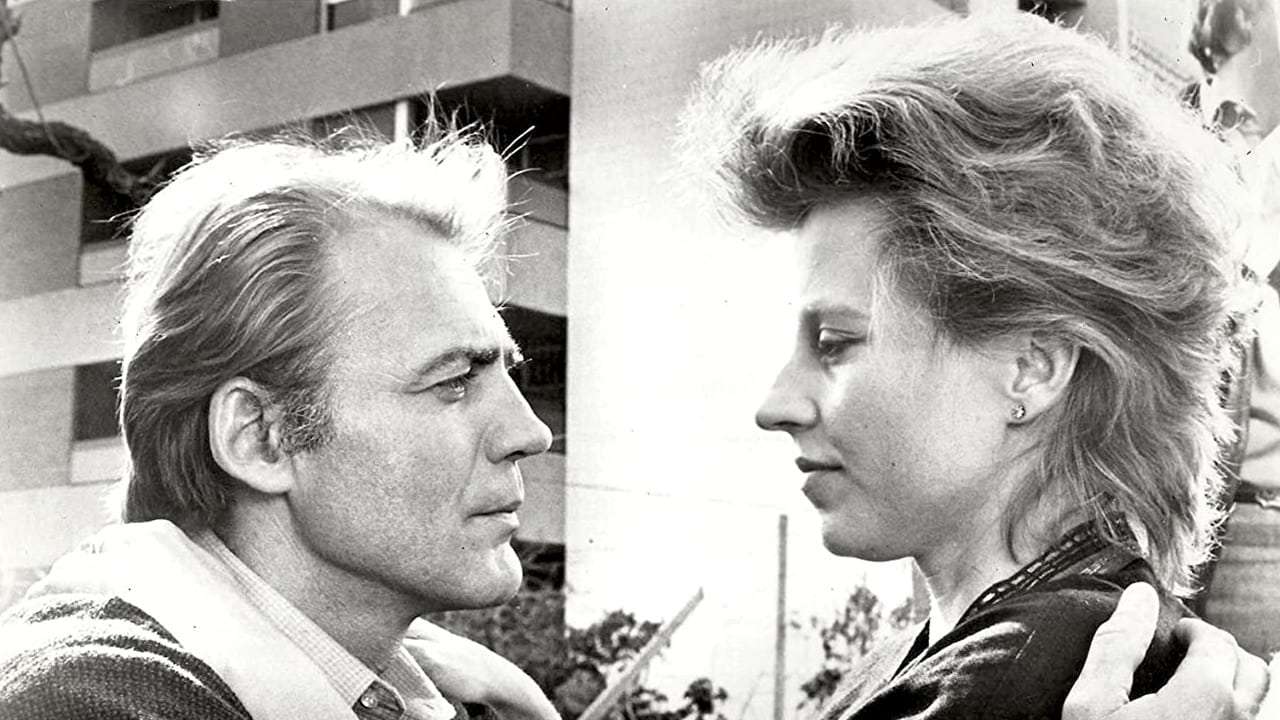
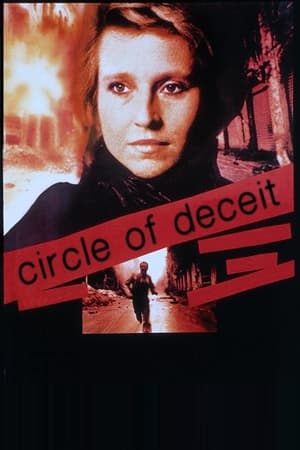
Circle of Deceit
1981 • 1h 48min • ★ 6.1/10 • Germany
Directed by: Volker Schlöndorff
Cast: Bruno Ganz, Hanna Schygulla, Jerzy Skolimowski, Jean Carmet, Gila von Weitershausen
Georg Laschen leaves his family in West Germany to go work as a war correspondent in Beirut during the fights between Christians and Palestinians.
“Circle of Deceit” is a 1981 German drama film directed by Volker Schlöndorff.
The film is set in war-torn Beirut in the early 1980s, and follows the experiences of a German journalist named Georg (played by Bruno Ganz) as he covers the escalating conflict and tries to make sense of the complex and violent events unfolding around him.
The film is known for its gritty and realistic depiction of the chaos and confusion of war, as well as its nuanced portrayal of the psychological and emotional toll that violence and conflict can take on those caught up in it.
https://www.youtube.com/watch?v=NzFXY7ak9VY
The film is shot in a documentary-like style, with a mix of hand-held camera work and stationary shots that give it a sense of immediacy and intimacy.
In addition to its exploration of the impact of war on individual lives, “Circle of Deceit” also raises broader questions about the role of the media in reporting on conflict, and the relationship between the West and the Middle East.
The film is a powerful and thought-provoking examination of the human cost of war, and remains a landmark of German cinema.
- Factory sealed DVD
- Bruno Ganz, Hanna Schygulla, Jean Carmet (Actors)
- Volker Schlndorff (Director) - Jean-Claude Carrire (Writer)
- English (Subtitle)
- Audience Rating: R (Restricted)
8. Swann in Love (1984)
“Swann in Love” is a 1984 French drama film directed by Volker Schlöndorff, based on the novel “Swann’s Way” by Marcel Proust.
The film tells the story of a young man named Charles Swann (played by Jeremy Irons) who falls deeply in love with a beautiful courtesan named Odette (played by Ornella Muti) and becomes obsessed with her. The film explores themes of love, jealousy, and the power of memory.
The film is notable for its sumptuous production design and cinematography, which captures the beauty and elegance of the Belle Époque era in which the story takes place.
It features elegant costumes, intricate sets, and beautiful music, all of which create a vivid and immersive world for the characters to inhabit.
The film also features strong performances from its cast, particularly Irons and Muti, who bring depth and nuance to their roles.
“Swann in Love” is widely regarded as a faithful and moving adaptation of Proust’s novel, and has been praised for its attention to detail, its lush visuals, and its sensitive portrayal of the characters’ emotions.
It is considered one of Schlöndorff’s most accomplished films and a classic of French cinema.
- Jeremy Irons, Ornella Muti, Alain Delon (Actors)
- Volker Schlndorff (Director) - Jean-Claude Carrire (Writer)
- English (Subtitle)
- Audience Rating: R (Restricted)
9. The Handmaid’s Tale (1990)
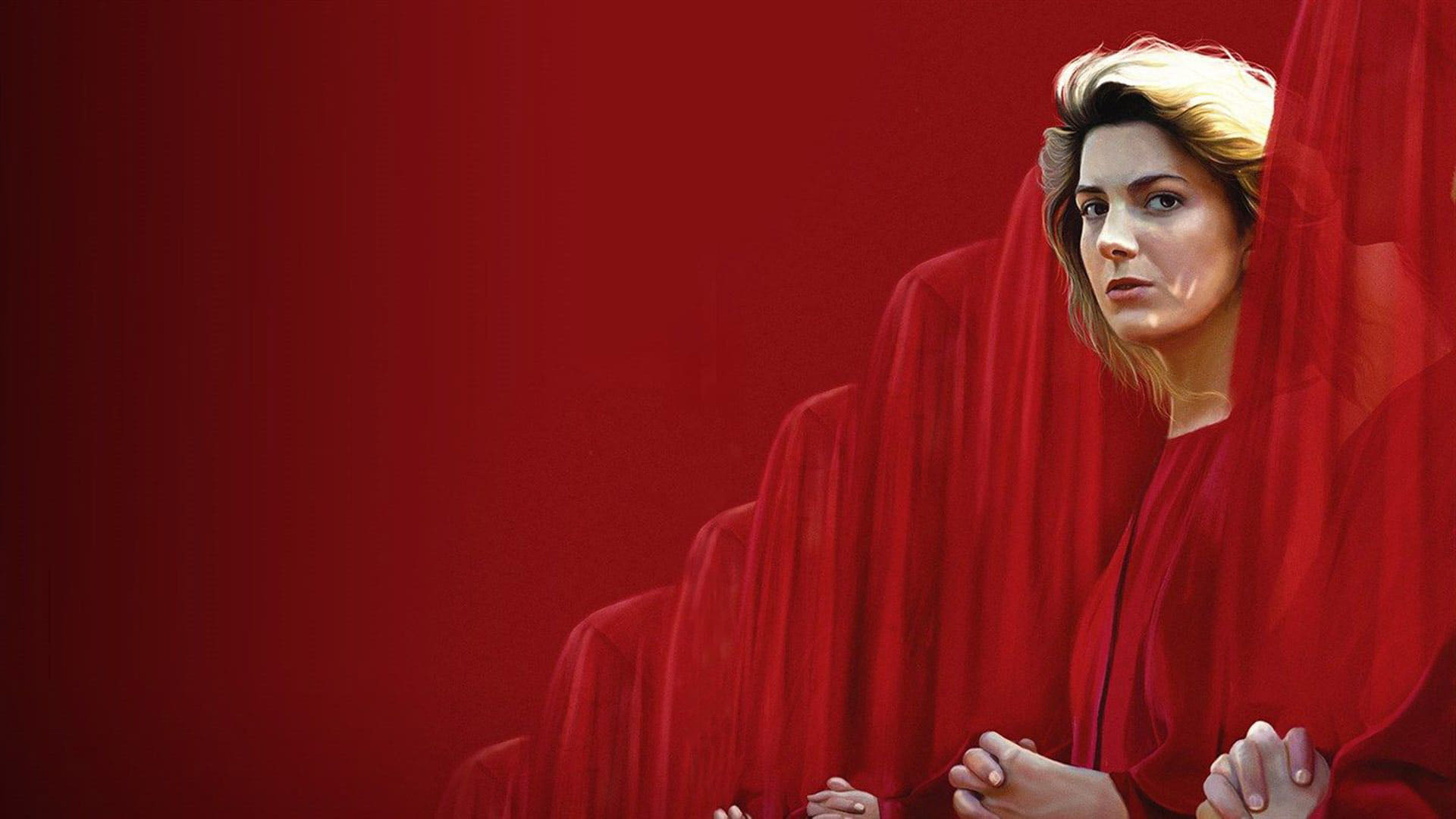
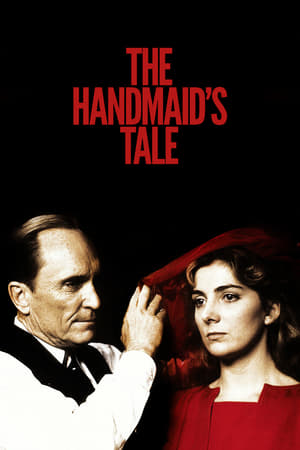
The Handmaid's Tale
A haunting tale of sexuality in a country gone wrong.
1990 • 1h 48min • ★ 6.2/10 • Germany
Directed by: Volker Schlöndorff
Cast: Natasha Richardson, Faye Dunaway, Aidan Quinn, Elizabeth McGovern, Victoria Tennant
In a dystopian, polluted right-wing religious tyranny, a young woman is put in sexual slavery on account of her now rare fertility.
“The Handmaid’s Tale” is a dystopian film directed by Volker Schlöndorff and released in 1990.
The film is based on the bestselling novel of the same name by Margaret Atwood and stars Natasha Richardson in the lead role.
The story takes place in a future society in which the United States has been taken over by a totalitarian regime that uses a twisted interpretation of Christianity as its ideological basis.
Women are stripped of their rights and reduced to the roles of wives, servants, or “handmaids,” whose sole purpose is to bear children for the ruling class.
The film’s themes of gender politics, religious extremism, and political oppression are as relevant today as they were when the novel was first published.
The performances by Richardson, Faye Dunaway, and Robert Duvall are powerful and emotionally affecting, and the film’s visual style is dark and foreboding, reflecting the bleakness of the society it depicts.
Overall, “The Handmaid’s Tale” is a thought-provoking and compelling film that offers a stark warning about the dangers of authoritarianism and the importance of fighting for human rights and freedom.
While the film may be difficult to watch at times, it is a powerful work of cinema that continues to resonate with audiences today.
- Natasha Richardson, Faye Dunaway, Robert Duvall (Actors)
- Volker Schlöndorff (Director)
- Audience Rating: NR (Not Rated)
10. Voyager (1991)
“Voyager” is a 1991 film directed by Volker Schlöndorff. The movie is based on the novel “Homo Faber” by Max Frisch and follows the story of Walter Faber, a Swiss engineer who embarks on a journey to escape from his past and confront his future.
The film stars Sam Shepard as Walter Faber, and Julie Delpy as Sabeth, a young woman he meets while on his travels.
The movie explores themes of love, fate, and the search for identity, as Walter and Sabeth navigate their relationship and the obstacles that arise during their journey together.
“Voyager” received mixed reviews from critics, but is still considered a notable film in Volker Schlöndorff’s body of work.
The movie’s atmospheric cinematography and the strong performances by its lead actors make it an interesting exploration of personal growth and self-discovery.
- Voyager (1991) ( Homo Faber ) ( Taxidiotis, O )
- Voyager (1991)
- Homo Faber
- Taxidiotis, O
- Julie Delpy, Barbara Sukowa, Deborra-Lee Furness (Actors)
11. The Ogre (1996)
“The Ogre” is a 1996 French-German-British film directed by Volker Schlöndorff, based on the novel “The Erl-King” by Michel Tournier.
The film tells the story of Abel Tiffauges, a Frenchman with a troubled past who becomes a Nazi collaborator during World War II.
One of the key characteristics of “The Ogre” is its exploration of the psychology of Abel Tiffauges.
The film delves into the complex motivations and psychological traumas that drive Tiffauges to become a collaborator, including his troubled childhood and his desire for acceptance and belonging.
The film also features a strong emphasis on the visual and aural elements of storytelling. The use of lush, surreal landscapes and haunting, atmospheric music creates a dreamlike quality that reinforces the film’s exploration of Tiffauges’ inner world.
“The Ogre” is also notable for its use of historical themes and events to explore broader philosophical and moral questions.
The film grapples with the complex issues of morality and culpability, as well as the ways in which individual actions can contribute to larger historical events.
Overall, “The Ogre” is a complex and powerful film that delves into important questions about the human psyche, morality, and history.
Its exploration of the psychology of collaboration and its emphasis on visual and aural storytelling make it a unique and memorable cinematic experience.
- Amazon Prime Video (Video on Demand)
- John Malkovich, Marianne Sagebrecht, Gottfried John (Actors)
- Volker Schlondorff (Director) - Michel Tournier (Writer) - Chris Auty (Producer)
- English (Playback Language)
- English (Subtitle)
12. Palmetto (1998)
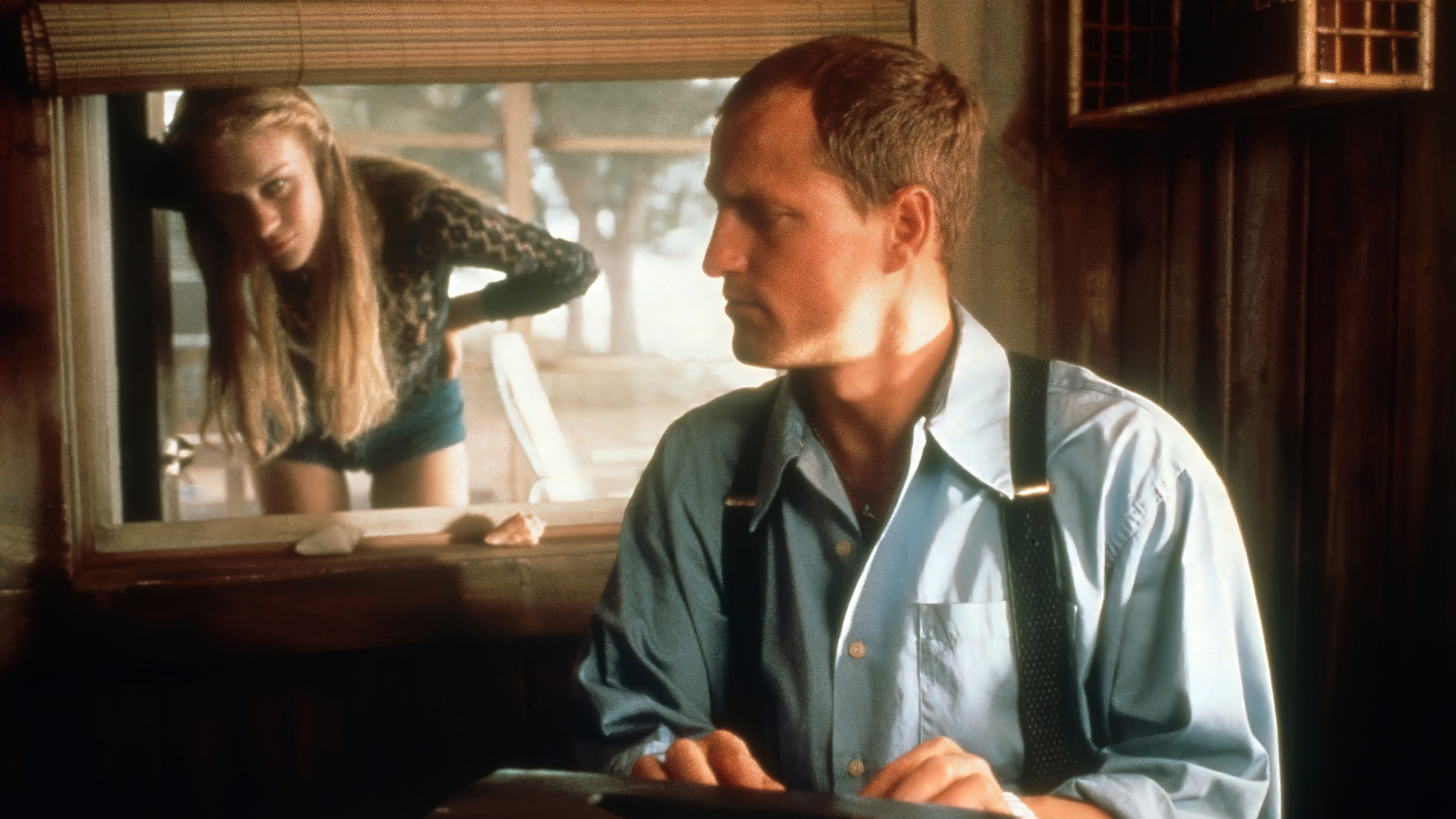
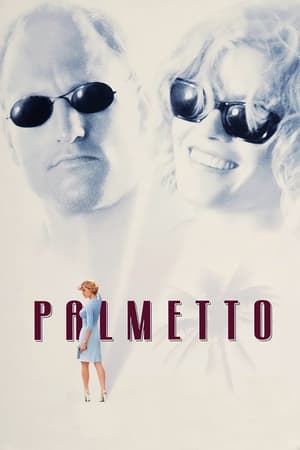
Palmetto
In a town this bad, it's no use being good.
1998 • 1h 54min • ★ 5.9/10 • Germany
Directed by: Volker Schlöndorff
Cast: Woody Harrelson, Gina Gershon, Elisabeth Shue, Rolf Hoppe, Michael Rapaport
After spending two years in prison, framed for accepting a bribe, former newspaper reporter Harry Barber is released, bitter and disillusioned. Feeling like he were owed something for his loss of time, he proceeds to get himself involved in a simple kidnapping plot which turns out to be more complex than he imagined.
Palmetto” is a 1998 neo-noir film directed by Volker Schlöndorff and starring Woody Harrelson, Elisabeth Shue, and Gina Gershon.
The film is based on the novel “Just Another Sucker” by James Hadley Chase and tells the story of a man who gets caught up in a dangerous plot when he is hired to fake a kidnapping.
One reason to watch “Palmetto” is its stylish and atmospheric cinematography. The film features striking visuals that evoke the classic film noir aesthetic, with moody lighting, shadowy corners, and a sense of foreboding permeating every scene.
Another reason to watch “Palmetto” is its engaging plot, which twists and turns in unexpected ways as the story unfolds.
The film’s mix of romance, betrayal, and crime keeps the audience guessing and on the edge of their seats.
Finally, “Palmetto” features strong performances from its talented cast. Woody Harrelson delivers a nuanced and complex performance as the film’s protagonist, while Elisabeth Shue and Gina Gershon add depth and intrigue to their respective roles.
Overall, “Palmetto” is a gripping and stylish neo-noir thriller that offers plenty of entertainment value for fans of the genre. Its strong visuals, engaging plot, and talented cast make it a must-watch for anyone looking for a tense and suspenseful cinematic experience.
- Woody Harrelson, Elisabeth Shue, Gina Gershon (Actors)
- Volker Schlndorff (Director)
- English, French (Subtitles)
- Audience Rating: R (Restricted)
13. The Legend of Rita (2000)
“The Legend of Rita” is a 2000 German drama film directed by Volker Schlöndorff. The film is set in the 1970s and 1980s, and follows the story of a young woman named Rita Vogt (played by Bibiana Beglau) who becomes involved with a radical leftist group in West Germany.
After a series of violent actions, Rita is forced to go into hiding in East Germany, where she assumes a new identity and starts a new life.
The film explores themes of political ideology, personal identity, and the tension between individual desires and collective action.
Through Rita’s story, the film offers a nuanced and complex portrait of the political and social realities of the time, and raises important questions about the nature of political commitment and the consequences of revolutionary action.
“The Legend of Rita” is notable for its strong performances and its bold visual style, which includes striking use of color and symbolism.
The film is a powerful and thought-provoking exploration of the legacy of the radical left in Germany, and remains a key work in Schlöndorff’s filmography.
- Factory sealed DVD
- Bibiana Beglau, Richard Kropf, Martin Wuttke (Actors)
- Volker Schlöndorff (Director) - The Legend of Rita (Writer)
- English (Subtitle)
- English (Publication Language)
14. The Ninth Day (2004)
“The Ninth Day” is a 2004 German historical drama film directed by Volker Schlöndorff.
The film is set in 1942 during World War II and follows the story of a Catholic priest named Henri Kremer (played by Ulrich Matthes) who is released from a concentration camp for nine days to persuade the Bishop of Luxembourg to collaborate with the Nazi regime.
The film explores themes of morality, faith, and the role of the Catholic Church during the Holocaust.
The film is notable for its atmospheric cinematography and its powerful performances, particularly from Matthes, who delivers a nuanced and sensitive portrayal of Kremer.
The film also features a compelling script, which uses Kremer’s struggle to highlight the complex ethical questions faced by many during the Holocaust.
“The Ninth Day” has been praised for its powerful message about the importance of standing up for one’s beliefs, even in the face of extreme adversity.
The film is widely considered to be one of Schlöndorff’s most important works, and has been recognized with numerous awards and nominations, including the Grand Prix des Amériques at the Montreal World Film Festival.
- NINTH DAY, THE DER NEUNTE TAG (DVD MOVIE)
- Ulrich Matthes, August Diehl, Hilmar Thate (Actors)
- Volker Schlndorff (Director) - Andreas Pflger (Writer)
- English (Subtitle)
- Audience Rating: Unrated (Not Rated)
15. Strike (2006)
“Strike” (Polish title: “Strajk”) is a 2006 historical drama film directed by Volker Schlöndorff, based on the true story of the 1970 Polish protests and strikes that led to the deaths of dozens of workers and helped bring down the communist government.
The film stars Katharina Thalbach, Andrzej Chyra, and Dominique Horwitz.
The film is set in the city of Gdańsk, where workers at the Lenin Shipyard go on strike to protest against poor working conditions and low pay.
The strike quickly spreads to other cities and becomes a national movement that challenges the authority of the ruling communist party.
The film depicts the events of the strike and the subsequent government crackdown in a tense and dramatic manner, showing the bravery and determination of the striking workers as well as the violence and repression of the authorities.
“Strike” is a well-made and thought-provoking film that offers a compelling look at a key moment in Polish history.
The performances by the cast are strong, and the film’s cinematography and direction effectively capture the intensity and urgency of the events depicted.
The film also provides insight into the struggle of workers’ rights and the larger political and social issues at play. Overall, “Strike” is a powerful and engaging film that sheds light on an important moment in the history of Poland and the world.
- Factory sealed DVD
- Katharina Thalbach; Dominique Horwitz; Wojciech Solarz; Andrzej Grabowski; Ewa Telega; Andrzej Chyra...
- Volker Schlöndorff (Director)
- English (Publication Language)
- Audience Rating: NR (Not Rated)
16. Ulzhan (2007)
“Ulzhan” is a 2007 film directed by Volker Schlöndorff, which tells the story of a Frenchman named Charles who travels to Kazakhstan to find a mysterious herder named Ulzhan.
The film explores themes of cultural exchange and self-discovery, as Charles comes to understand the Kazakh way of life and experiences a journey of personal growth.
The film stars Philippe Torreton as Charles, and Ayanat Ksenbai as Ulzhan. The movie was praised for its stunning cinematography that captures the vast landscapes and nomadic life of Kazakhstan.
https://www.youtube.com/watch?v=O4LVErpXQEU
The film also features a memorable musical score by Bruno Coulais, which complements the breathtaking visuals of the film.
Overall, “Ulzhan” is a visually stunning film that provides a unique perspective on the interplay between different cultures and how individuals can find meaning and connection in unexpected places.
- Amazon Prime Video (Video on Demand)
- Philippe Torreton, Ayanat Ksenbai, David Bennent (Actors)
- Volker Schlöndorff (Director) - Jean-Claude Carrière (Writer) - Sergei Azimov (Producer)
- (Playback Language)
- Audience Rating: NR (Not Rated)
17. Calm at Sea (2011)
“Calm at Sea” is a 2011 French drama film directed by Volker Schlöndorff, based on the novel “Un ennemi du peuple” by Norwegian playwright Henrik Ibsen.
The film tells the story of a group of German soldiers stationed on the coast of France during World War II who encounter a group of French Resistance fighters.
One of the key characteristics of “Calm at Sea” is its exploration of the complexities of war and occupation.
The film examines the perspectives of both the German soldiers and the French Resistance fighters, and explores the ways in which individuals are shaped and influenced by their cultural and historical contexts.
The film is also notable for its visual and aural elements. The use of striking coastal landscapes and atmospheric music creates a sense of tension and unease throughout the film, underscoring the high stakes of the characters’ actions.
Overall, “Calm at Sea” is a thoughtful and powerful film that explores important questions about war, power, and morality.
Its use of striking visuals and its examination of complex ethical questions make it a compelling and thought-provoking cinematic experience.
- Marc Barbe, Leo Paul Salmain (Actors)
- Volker Schlöndorff (Director)
- English (Subtitle)
- Audience Rating: NR (Not Rated)
18. Diplomacy (2014)
“Diplomacy” is a 2014 drama film directed by Volker Schlöndorff and based on the play by Cyril Gély.
The film is set in 1944 during the German occupation of Paris, and follows a Swedish diplomat who tries to persuade the German governor of Paris to abandon his order to destroy the city’s landmarks before retreating.
One reason to watch “Diplomacy” is its thought-provoking exploration of moral and ethical questions.
The film raises difficult issues about war, politics, and diplomacy, and asks the viewer to consider what they would do in a similar situation.
Another reason to watch “Diplomacy” is its excellent performances. The film features powerful and nuanced portrayals of its two central characters, played by André Dussollier and Niels Arestrup.
Their tense and complex interactions are the heart of the film and are sure to leave a lasting impression on the viewer.
Finally, “Diplomacy” is a well-crafted and visually striking film. The movie’s recreations of Paris in the 1940s are detailed and impressive, and the cinematography captures the tension and drama of the story perfectly.
Overall, “Diplomacy” is a moving and thought-provoking film that offers a unique perspective on one of the darkest periods in modern history.
Its excellent performances, engaging story, and impressive visuals make it a must-watch for anyone interested in historical dramas or thought-provoking cinema.
- Diplomacy (2014) ( Diplomatie )
- Diplomacy (2014)
- Diplomatie
- Andre Dussollier, Niels Arestrup, Burghart Klaußner (Actors)
- Volker Schlöndorff (Director) - Diplomacy (2014) ( Diplomatie ) (Producer)
19. Return to Montauk (2017)
“Return to Montauk” is a 2017 German drama film directed by Volker Schlöndorff. The film tells the story of a writer named Max Zorn (played by Stellan Skarsgård), who returns to New York City from Germany to promote his latest novel.
While there, he reconnects with a former lover named Rebecca (played by Nina Hoss), and the two spend a day together in Montauk, a small town on Long Island where they had spent a romantic weekend years earlier.
The film explores themes of memory, regret, and the nature of love, and is notable for its beautiful cinematography and lyrical storytelling style.
The film is a poignant and bittersweet meditation on the complexities of human relationships and the power of memory, and offers a thoughtful and nuanced exploration of the nature of love and the ways in which it can shape our lives.
In addition to its strong performances and beautiful visuals, “Return to Montauk” is notable for its use of literature and storytelling, and for the way in which it weaves together multiple narrative threads to create a rich and complex portrait of its characters and their experiences.
The film is a moving and thought-provoking work, and is a worthy addition to Schlöndorff’s distinguished filmography.
- Amazon Prime Video (Video on Demand)
- Stellan Skarsgård, Nina Hoss, Bronagh Gallagher (Actors)
- Volker Schlöndorff (Director) - Volker Schlöndorff (Writer) - Sidonie Dumas (Producer)
- English (Playback Language)
- English (Subtitle)
3 Characteristics of Volker Schlöndorff Films
Volker Schlöndorff is a German film director and screenwriter known for his thought-provoking and politically engaged films. Here are three characteristics of his films:
Social commentary: Many of Schlöndorff’s films deal with social and political issues, such as fascism, authoritarianism, and historical memory.
He often uses historical events as a backdrop to explore contemporary concerns and to draw parallels between the past and present.
Visual style: Schlöndorff is known for his distinctive visual style, which often incorporates wide-angle shots and handheld camera work to create a sense of immediacy and intimacy.
He also pays careful attention to production design and cinematography, using colors, lighting, and composition to create mood and atmosphere.
Literary adaptations: Schlöndorff has adapted many literary works for the screen, including the works of Günter Grass, Arthur Miller, and Marcel Proust.
He is known for his careful attention to detail in translating these works to the screen, and for his ability to capture the essence of complex literary themes and ideas in his films.
3 Reasons Why You Should Watch Volker Schlöndorff Films
Volker Schlöndorff is a renowned German filmmaker whose works have won numerous awards and critical acclaim. Here are three reasons why you should watch his films:
Strong storytelling: Schlöndorff’s films are known for their compelling narratives and well-drawn characters. He often adapts literary works for the screen, and his films are known for their depth, complexity, and nuance.
Political engagement: Schlöndorff’s films often grapple with important social and political issues. He is known for his commitment to social justice and human rights, and many of his films deal with topics such as war, fascism, and authoritarianism.
Cinematic artistry: Schlöndorff is a master of cinematic technique, and his films are often praised for their visual beauty and attention to detail. He has a keen eye for composition and uses lighting, sound, and music to create mood and atmosphere in his films.
Overall, Volker Schlöndorff is a filmmaker with a strong vision and a commitment to telling powerful stories. His films are intelligent, thought-provoking, and engaging, and offer a window into important social and political issues.
If you’re interested in world cinema and want to explore the work of a talented filmmaker, then watching Schlöndorff’s films is a great place to start.
Best Volker Schlöndorff Films – Wrapping Up
Volker Schlöndorff is a talented and accomplished filmmaker, with a career spanning several decades. Here are some of his most notable films:
“The Tin Drum” (1979): This film won the Palme d’Or at the Cannes Film Festival and the Academy Award for Best Foreign Language Film.
It is an adaptation of the novel by Günter Grass and is considered a masterpiece of German cinema.
“Young Törless” (1966): This is Schlöndorff’s debut feature film, which explores the psychological tensions and moral corruption at a boarding school. It is based on the novel by Robert Musil.
“Death of a Salesman” (1985): This TV movie adaptation of the play by Arthur Miller stars Dustin Hoffman and won several awards, including an Emmy and a Golden Globe.
“The Handmaid’s Tale” (1990): This film is based on the dystopian novel by Margaret Atwood and stars Natasha Richardson and Faye Dunaway. It won several awards, including the Berlin International Film Festival’s Golden Bear.
“Coup de Grâce” (1976): This film is set in Latvia during the Russian Revolution and is based on the novel by Marguerite Yourcenar. It is considered one of Schlöndorff’s most visually stunning and emotionally powerful films.
Overall, Volker Schlöndorff is a talented and versatile filmmaker who has made many memorable contributions to world cinema.



![The Tin Drum (The Criterion Collection) [DVD]](https://m.media-amazon.com/images/I/61tw0CCsZfL.jpg)


![Degree of Murder (1967) ( Mord und Totschlag ) [ Blu-Ray, Reg.A/B/C Import - Germany ]](https://m.media-amazon.com/images/I/51zbKdX86hL.jpg)

![The Lost Honor of Katharina Blum (The Criterion Collection) [DVD]](https://m.media-amazon.com/images/I/41KlNZUXyCL.jpg)






![Voyager (1991) ( Homo Faber ) ( Taxidiotis, O ) [ NON-USA FORMAT, Blu-Ray, Reg.B Import - Germany ]](https://m.media-amazon.com/images/I/5157BPx0BXL.jpg)

![Palmetto [DVD]](https://m.media-amazon.com/images/I/51KTKA2XTML.jpg)





![Diplomacy (2014) ( Diplomatie ) [ Blu-Ray, Reg.A/B/C Import - France ]](https://m.media-amazon.com/images/I/51LpFdOpNeS.jpg)

